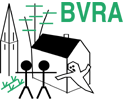The Domesday Book is a general survey and valuation of landed property in England, taken in 1086 on the orders of William the Conqueror, twenty years after he conquered England. In fact, there have always been two Domesday Books, called Great and Little Domesday, because of their different sizes. The survey probably became known as 'Domesday' (the popular name for the final Day of Judgement) because it was the final proof of legal title to land, and in later centuries it was mainly used, in the law courts, for this purpose. It is not a census of the population, and the names that appear in it are only of land-holders.
While Wokingham is not mentioned, Barkham has the following entry:
The King holds Barkham in demesne. Ælmer held it of King Edward [the Confessor]. Then, as now, it was rated for three hides [c.360 acres]. The land is three ploughlands. In demesne there is one ploughland. There are six villeins, four bordars with three ploughs. There are five acres of pasture. Wood for the pasturage of forty hogs. It was worth £4 in the time of King Edward [1042-66], afterwards, and now £3.
